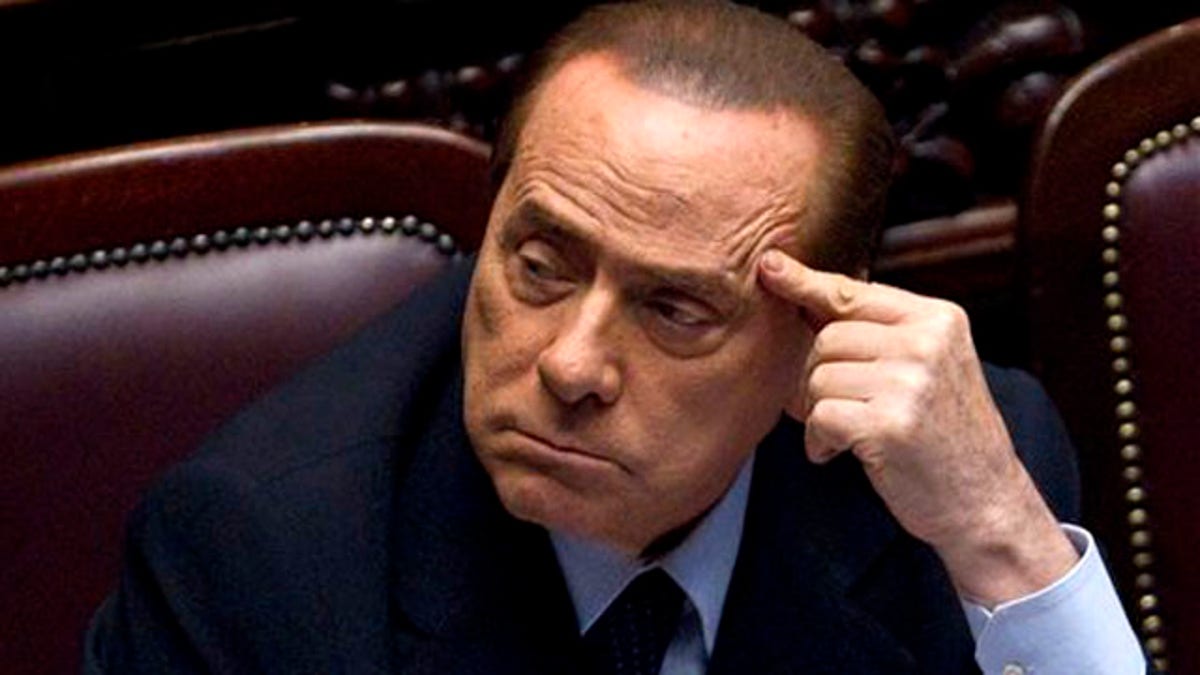
Italian Premier Silvio Berlusconi votes over a crucial austerity package. (AP)
ROME -- Italy's embattled Premier Silvio Berlusconi narrowly survived a test in Parliament on Thursday, with lawmakers deciding not to lift the immunity of an allied deputy under investigation in a corruption probe.
Italian lawmakers enjoy immunity from arrest unless they vote to lift it.
The lower Chamber of Deputies voted 312-306 to keep parliamentary immunity intact for Marco Milanese, a former top aide to Finance Minister Giulio Tremonti who has been implicated in a corruption investigation in Naples.
The vote by secret ballot was a key test of the cohesiveness of Berlusconi's majority. If Berlusconi's allies had turned on him and lifted Milanese's immunity, it would have sent a strong signal of divisions within the majority.
It would have also reflected poorly on Tremonti, the respected architect of Italy's austerity measures as the country struggles to avoid being sucked into Europe's debt crisis.
Berlusconi said he was satisfied with the outcome but declined further comment.
But according to vote breakdowns in the Italian media, at least seven Berlusconi allies did vote to have Milanese arrested, taking advantage of the secret ballot to break ranks. Their numbers, however, weren't enough to affect the final outcome.
Milanese resigned as Tremonti's political adviser after he was caught up in June in a corruption probe in which he was accused by Naples prosecutors of allegedly passing on confidential information in exchange for money and services. He denies the accusations.
Tremonti himself came under the spotlight for having paid Milanese under the table for the use of Milanese's Rome pied-a-terre for the nights he spent in the capital. Tremonti is not the subject of any criminal probe, and he has acknowledged that he should have handled his housing arrangements better.
But the former accountant-turned-politician has been politically weakened by the Milanese affair at a time when markets needed reassurances from him about Italy's seriousness about reigning in its debt.
Tremonti is widely lauded as the figure who had helped Italy survive the 2008 financial crisis by keeping a tight rein on spending. He pushed through Italy's austerity measures, designed to cut debt through tax hikes and budget cuts, but only after internal political bickering altered the original package several times.
This week, S&P downgraded Italian sovereign bonds to A from A+ -- reinforcing fears that Italy, with the second-highest debt burden in the eurozone after Greece, is getting drawn into Europe's debt crisis.
The agency cited weaker growth prospects and a fragile governing coalition as key reasons for its surprisingly swift downgrade, just four months after issuing a warning.
The downgrade has cast yet another cloud over Berlusconi as he struggles to maintain unity in the face of an ongoing sex scandal and the debt crisis.
Pope Benedict XVI seemed to chime in on Italy's woes Thursday when he sent a telegram to Italian President Giorgio Napolitano from the papal plane as he traveled to Germany for a state visit. Such telegrams are usually pro-forma greetings but on Thursday Benedict expressed his hopes for "an ever more intense ethical renewal" in Italy.
Vatican spokesman the Rev. Federico Lombardi was asked if the pope intended the message to apply to Berlusconi. He said Italy's ethical problems regarding economics and personal behavior were well known.
